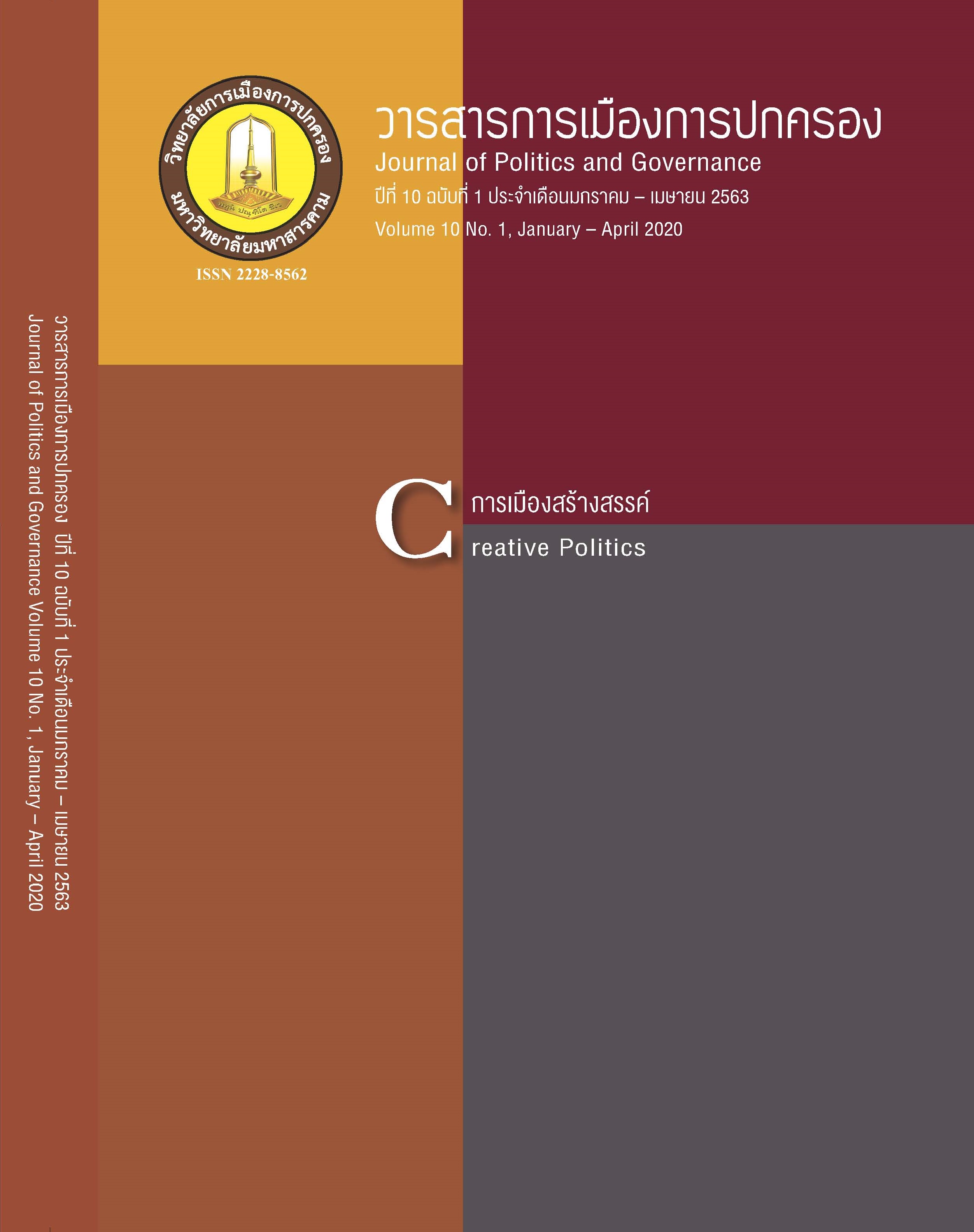Ethical Concepts in the Western World
Main Article Content
Abstract
This article is to study about the ethical concepts in the western world, by using documentary study. The findings found out that, the ethical concepts in the western world can be divided into 4 ages. They are (1) ancient Greek ages by Sophists, Plato, and Aristotle are important philosophers; (2) middle ages by Augustine and Thomas Aquinas are major philosophers; (3) modern ages by Niccolo Machiavelli, Thomas Hobbes, John Locke, David Hume, Immanuel Kant, Jeremy Bentham and John Stuart Mill are prominent philosophers; and (4) postmodern ages by Michel Foucault and Jacques Derrida are examples of distinguished philosophers. Moreover, the result of the study indicated that ethical judgment criteria in the western world can be divided into three groups. They are (1) universal ethical judgment, (2) relative ethical judgment, and (3) semi-relative ethical judgment.
Article Details
References
________. (2561ข). จริยธรรมในการบริหารรัฐกิจ. มหาสารคาม : อภิชาติการพิมพ์.
Aristotle. (1999). Nicomachean Ethics. Translated by W. D. Ross. Kitchener: Batoche Books.
Bowman, J.S. and West, J.P. (2015). Public Service Ethics: Individual and Institutional Responsibilities. London: SAGE Publications Ltd.
Bruce, W., ed., (2001). Classics of Administrative Ethics. Colorado: Westview Press.
Chandler, R.C. (2001). “Deontological Dimensions of Administrative Ethics Revisited” in T.L. Cooper,ed. Handbook of Administrative Ethics. New York: Marcel Dekker, Inc.
Coope. C.M. (2006). “Modern Virtue Ethics” in T. Chappell, ed. Values and Virtues: Aristotelianism in Contemporary Ethics. Oxford: Clarendon Press.
Fox, C.J. (2001). “The Use of Philosophy in Administrative Ethics” in T.L. Cooper, ed. Handbook of Administrative Ethics. New York: Marcel Dekker, Inc.
Garofalo, G. and Geuras, D. (2006). Common Ground, Common Future: Moral Agency in Public Administration, Professions, and Citizenship. London: Taylor & Francis Group.
Geuras, D. and Garofalo, C. (2011). Practical Ethics in Public Administration. Virginia:Management Concepts, Inc.
Gortner, H.F. (2001). “Values and Ethics” in T.L. Cooper, ed. Handbook of Administrative Ethics. New York: Marcel Dekker, Inc.
Hanbury, G. L. (2004). “A “Pracademic’s” Perspective of Ethics and Honor: Imperatives for Public Service in the 21st Century!”. Public Organization Review: A Global Journal, 4, 187-204.
Hooft, S.V. (2006). Understanding Virtue Ethics. Chesham: Acumen.
Koven, S.G. (2015). Public Sector Ethics: Theory and Applications. London: CRC Press.
Lawton, A.; Rayner, J.; and Lasthuizen, K. (2013) Ethics and Management in the Public Sector. London: Routledge.
Lynch, C.E. and Lynch, D.L. (2009). “Democratic Morality: Back to the Future” in R.W. Cox III, ed. Ethics and Integrity in Public Administration: Concepts and Cases. New York: M.E. Sharpe, Inc.
MacIntyre, A. (1996). A Short History of Ethics. New York: Macmillan Publishing Company.
________. (2007). After Virtue: A Study in Moral Theory. Indiana: University of Notre Dame Press.
Martinez, J.M. (2009). Public Administration Ethics for the 21st Century. California: Praeger-ABC- CLIO, LLC.
Martinez, J.M. and Richardson, W.D. (2008). Administrative Ethics in the Twenty-first Century. New York: Peter Lang Publishing, Inc.
Pops, G.M. (2001). “A Teleological Approach to Administrative Ethics” in T.L. Cooper, ed. Handbook Of Administrative Ethics. New York: Marcel Dekker, Inc.
Rowe, C. (2002). Aristotle Nicomachean Ethics. New York: Oxford University Press Inc.
Songklin, P. (2016). “Managing Ethics in Public Sector: Integrity Approach” in A. Numandi. ed. Journal of Governance & Politics, 7(4), 578-593.
________. (2017). “Ethics in Public Administration: Theoretical Foundation” in Advances in Social Science, Education and Humanities Research, 84, 390-393.
Svara, J. (2015). The Ethics Primer for Public Administrators in Government and Nonprofit Organizations. Burlington: Jones & Bartlett Learning.
Tannsjo. T. (2013). Understanding Ethics. 3rd ed. Edinburgh: Edinburgh University Press, Ltd.
Timmons, M. (2013). Moral Theory: An Introduction. 2nd ed. Plymouth: Rowman & Littlefield Publishing, Inc.
Ventriss, C. (2001). “The Relevance of Public Ethics to Administration and Policy” in T.L. Cooper, ed. Handbook of Administrative Ethics. New York: Marcel Dekker, Inc.


